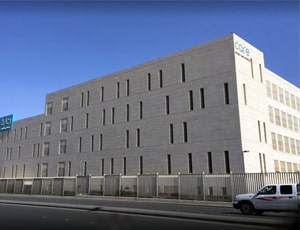There can be a number of eye-related problems that can be resolved through a retina surgery or a vitrectomy, which is a kind of eye surgery. Vitrectomy is conducted to rectify a range of eye problems. However, it is not as common and simple as a cataract surgery. As the names suggest, vitrectomy or retina surgery aims at correcting a number of defects pertaining specifically to the vitreous and the retina of the eye.
Some of the problems that demand vitrectomy include age-related macular degeneration, macular hole, epiretinal membrane, Cytomegalovirus (CMV) retinitis, retinal detachment or retinal tear, diabetic retinopathy, and vitreous hemorrhage, wherein bleeding occurs and the blood does not get cleared by natural healing process of the body.
The symptoms of the above-enlisted problems may include the following:
With the help of conventional surgery or laser vitrectomy is performed very deep inside the eye. The surgery takes place near retina, the light-sensitive membranous part of the eye and the gel- like vitreous is present. It may be required by patients who have developed some unwanted side effects after cataract surgery is performed.
You ophthalmologist will conduct a thorough examination of your eyes before the procedure. He or she would advise specific things that you need to do before the procedure.
The following are some of the questions that you should ask your ophthalmologist before the surgery:
The doctor may want to conduct a comprehensive eye test, including an ultrasound of the eye to have a closer look at the retina before the surgery.
The vitreous humour or retinal surgery is usually performed after administering general anaesthesia to the patient. However, this may be avoided and local anaesthesia may be involved in a few cases instead. This is usually done in special cases where the patient in concern has some breathing troubles.
The incisions are made so that that they fall in front of the retina but behind the iris. In fact, the incisions are placed in the pars plana of the eye. The instruments that are usually for vitrectomy are enlisted below:
After this, with precision, the vitreous gel is cut with the vitrector and is suctioned out of the eye. The surgeon usually treats the retina with a laser. This is called photocoagulation. Fibrous or scar tissues are removed in this process from the retina. The places of retinal detachment are flattened. Tears or holes that may have resulted are repaired in the retina or the macula of the eye
The retina must be pressed against the wall of the eye. This is done by injecting silicone oil or a gas bubble in the eye. After the complete healing of the retinal detachment, the oil is used as the oil bubble must be removed since the body does not have the ability to absorb oil. Oil bubble works much better as compared to the air bubble. The oil bubble does not move around the eye, unlike gas bubble. It facilitates easy recovery in case of children and elderly people who have trouble keeping the head in one single position for long.
The affected eye is covered with a patch after the vitrectomy procedure. This can be removed before going to bed. For a speedy recovery, eye drops are prescribed after the vitrectomy surgery. It is not very uncommon to have the operated eye swollen for several days after the procedure with some amount of discomfort associated with it. Over-the-counter (OTC) medications, in addition to occasional eye press, will bring about the desired relief. If the throbbing pain is felt despite the use of OTC medications, then do not hesitate to ask help from your doctor.
As a part of your recovery, you may have to lie face down for quite a number of days if you have been treated for retinal detachment along with gas bubble. This ensures that the bubble is in a proper position. When excessive blood vessels and scar tissues have been removed, the gas bubble will assist in pushing the retina back into the original space.

Riyadh, Saudi Arabia
History Riyadh care hospital is a highly specialized hospital with world-class infrastructure. The ...more
![]() Accommodation
Accommodation
![]() Airport Transfer
Airport Transfer
![]() Choice of Meals
Choice of Meals
![]() Interpreter
Interpreter

Kuala Lumpur, Malaysia
History Parkway Pantai Hospital in Kuala Lumpur, Malaysia is operating under the Parkway Pantai gro...more
![]() Accommodation
Accommodation
![]() Airport Transfer
Airport Transfer
![]() Choice of Meals
Choice of Meals
![]() Interpreter
Interpreter

Delhi, India
Equipped with more than 50 specialty institutes, Indraprastha Apollo was started with the vision of ...more
![]() Private Rooms
Private Rooms
![]() Translator
Translator
![]() Nursery / Nanny Services
Nursery / Nanny Services
![]() Airport Pick up
Airport Pick up

Opthalmologist
Delhi, India
15 Years of experience
USD 32 for video consultation

Opthalmologist
Delhi, India
11 Years of experience
USD 28 for video consultation

Ophthalmologist
Dubai, U.A.E.
5 of experience
USD 120 for video consultation

Ophthalmologist
Singapore, Singapore
7 Years of experience
USD 325 for video consultation
Q: Are there any chances of permanent blindness?
A: Very rare but there have been a few unfortunate cases.
Q: Can floaters return?
A: Usually not but minor floaters can come back if proper care and diet are not followed.
Q: What is the cost of vitrectomy surgery?
A: Vitrectomy cost varies from one country to the other. Additionally, it depends on the complexities involved and the experience of the surgeon.
Q: How long will the effects last?
A: After the vitrectomy surgery, there are chances of less lethal and insignificant floaters coming back because of the increased sensitivity. However, the effects of vitrectomy are permanent but some small floaters can come back. They may disappear with proper care of the eye and a good diet.
Q: How successful is a vitrectomy?
A: Vitrectomy has a very high success rate when it comes to improving vision.
Q: How long does it take to do a vitrectomy?
A: The length of the procedure may vary from 30 minutes to a little over 3 hours.
Q: Can macular hole come back?
A: There are three to four percent chances that a macular hole may return after one to two years of the surgery. In such cases, a repeat is required.